WASHINGTON (Army News Service, July 2, 2009) -- The U.S. Army Reserve and the Army National Guard signed an agreement with 'Helmets to Hardhats' at the Pentagon today that allows Soldiers greater access to construction career opportunities.
Helmets to Hardhats is a nonprofit program that connects servicemembers with construction jobs. It works with 15 building and construction unions and more than 80,000 employers represented by nine contractor associations.
A part of the Army Reserve Employer Partnership Initiative, the joint venture will benefit all parties by recruiting and training highly skilled workers to serve both the civilian and military sectors.
More than 400 employers are now a part of the partnership, but Helmets to Hardhats is the first to also partner with the National Guard, according to Maj. Gen. Raymond Carpenter, acting director of the Army National Guard.
"More than anything, Helmets to Hardhats brings the opportunities for our Soldiers to come back and find a job if they don't have one," Carpenter said.
Darrell Roberts, executive director of Helmets to Hardhats, said he wants the program to help Soldiers with "careers that are not short term, not dead in jobs, but opportunities coupled with skilled training that helps place the servicemen on a path to sustained secure career opportunities."
Under the program, the Helmets to Hardhats employers will train the Soldier in construction and the Army Reserve and National Guard will hone the Soldier's leadership ability, confidence and work ethic, according to Lt. Gen. Jack Stultz, chief of the Army Reserve.
"We want to help identify Soldiers and bring them to you, but we want to share them with you," said. "We want to share those skills and capabilities that you're going to give them with the military."
Started in 2008, the Employer Partnership Initiative helps Soldiers succeed in their chosen career while serving their country, Stultz said.
"That's a new level of confidence for the Soldier to say that I can serve in uniform and the civilian sector," Stultz said.
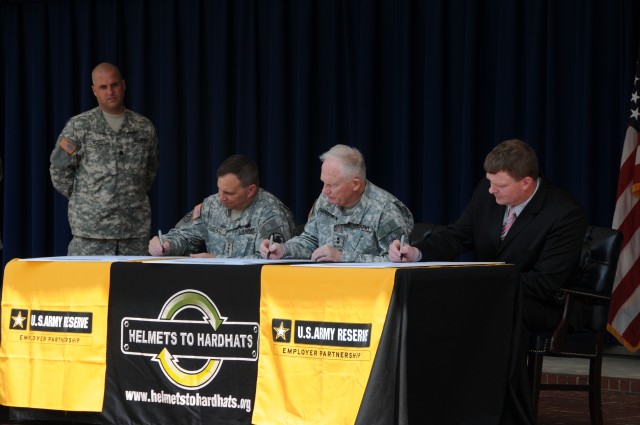
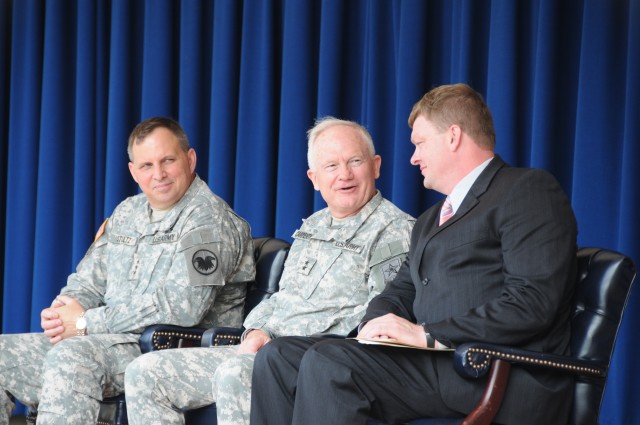
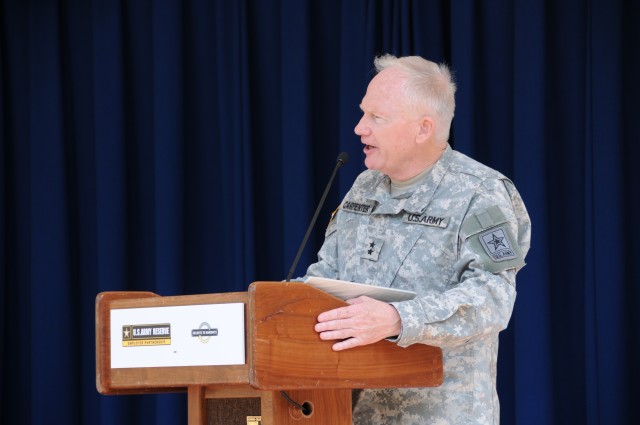
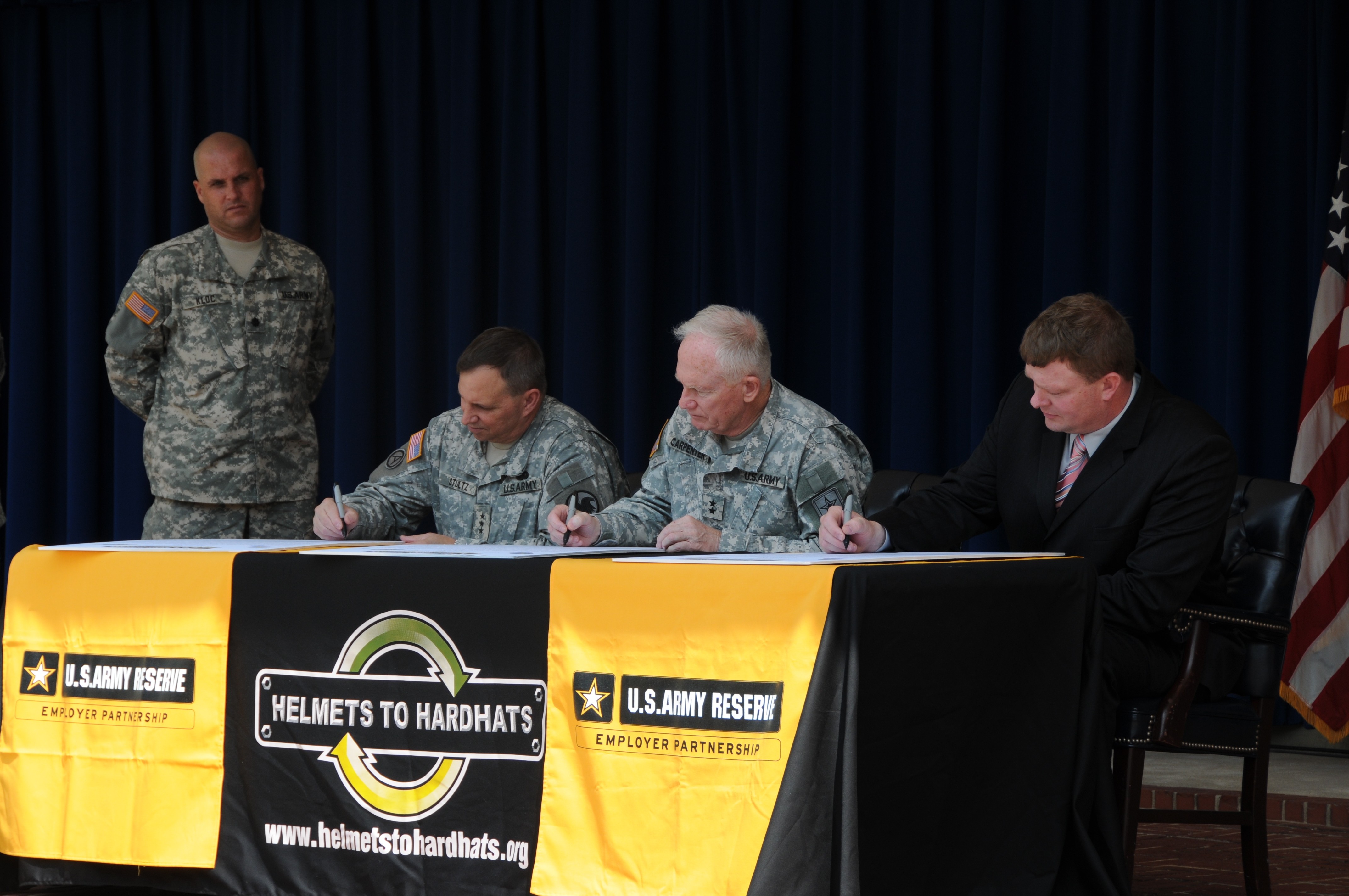
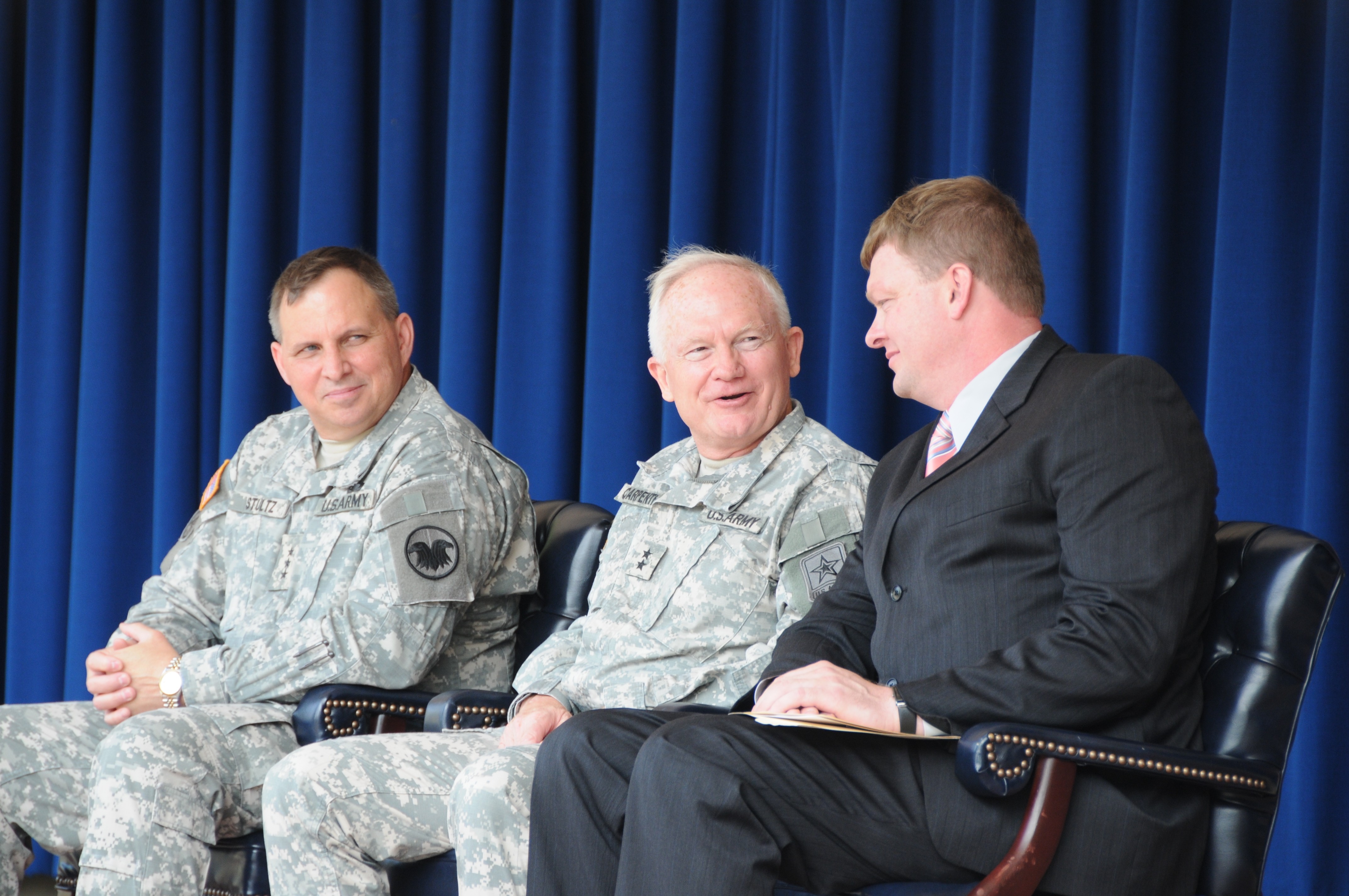
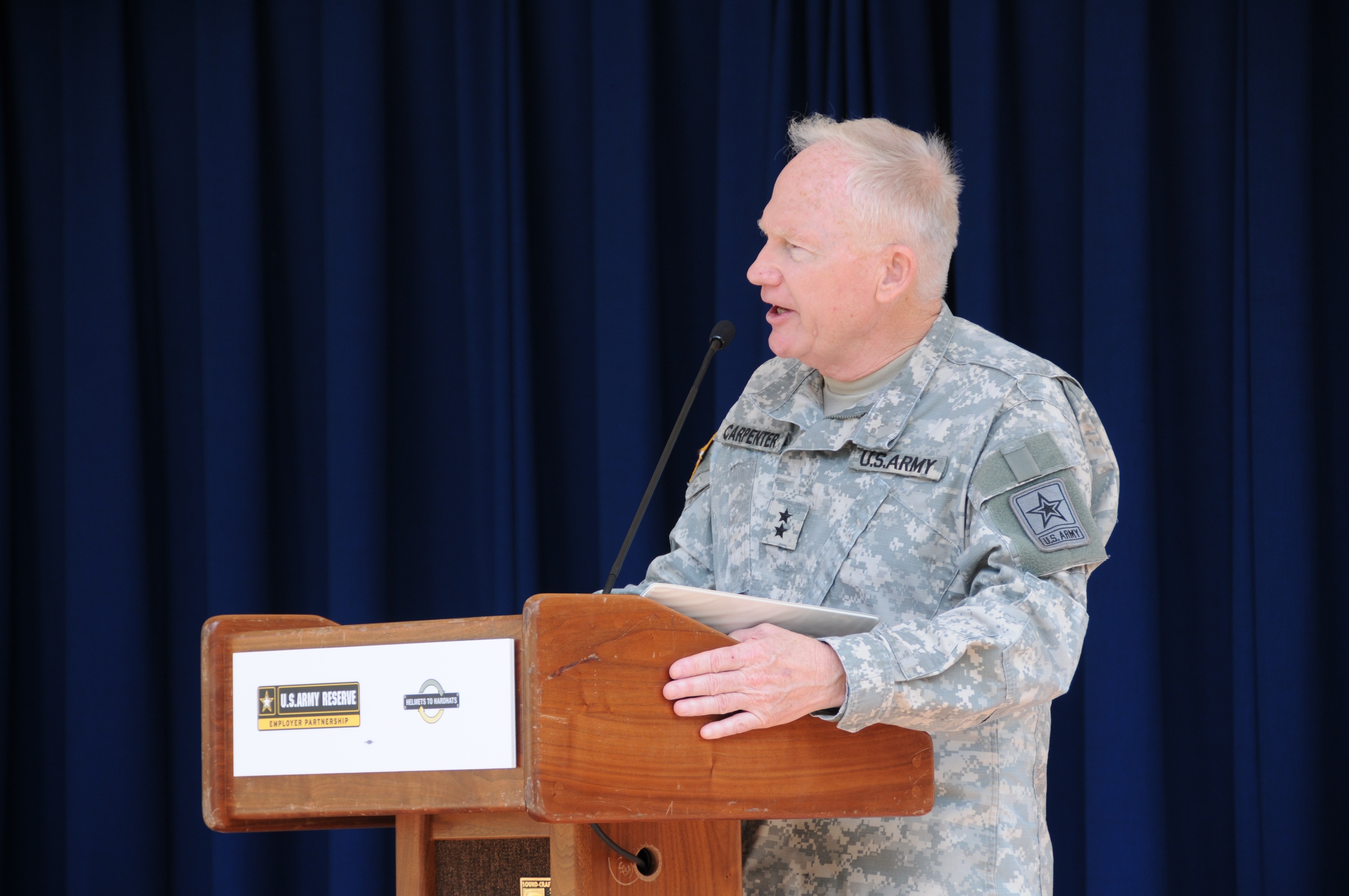
Social Sharing